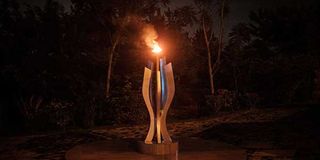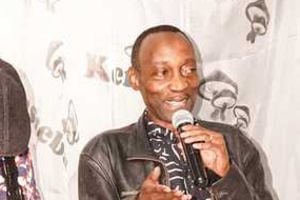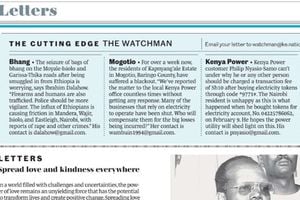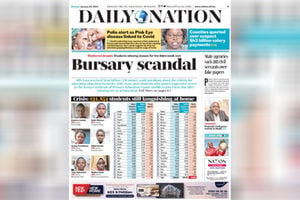
The flame of remembrance at the Kigali Genocide Memorial in Kigali, Rwanda.
An alarming headline on Monday’s International News page of the Daily Nation has caught the attention of readers.
The headline reads: “Rwandans celebrate 30th anniversary of genocide.” The story, filed from Kigali, was written by Reuters, the British news agency. The original headline read: “Rwanda’s president leads genocide commemoration 30 years on.” But the Nation opted for its own headline.
Githuku Mungai pointed out the insensitivity of using the word “celebrate”. James Kihali wondered how “wickedness like genocide could be celebrated”.
Zoeb Tayebjee said, “Surely Rwandans are not celebrating the 1994 genocide that killed a million people”.
The word “celebrate” implies a joyful or happy occasion, such as a birthday, wedding anniversary or Jamhuri Day. But the Genocide against the Tutsi was a catastrophic event. In light of this, it is essential to use appropriate language to convey the gravity of the grim occasion. Words like “mark”, “commemorate” or “observe” would have been more fitting.
At the commemoration, President Paul Kagame lit the genocide flame of hope, or “Kwibuka” (remembrance), emphasising the solemnity of the occasion. Rwandans, as expected, are sensitive about the genocide; they could misconstrue the headline as trivialising a horrific period in their history.
Editors should always be mindful of the language they use and its potential impact on those who have experienced trauma. Rwandans deserve respect and sensitivity during the horrifying anniversary.
* * *
Charo Araujo says I didn’t answer a crucial question: “Are cartoonists allowed to alter facts?” He’s referring to my article last Friday, “Why suing a political cartoonist for defamation is a trying affair.”
True, I didn’t explicitly discuss the question. Cartoonists, like journalists, are ethically obligated to represent issues accurately, without distortion or falsification. The journalism maxim “Comment is free but facts are sacred” applies equally to both.
Cartoonists must ground their work in facts.
Journalism’s fundamental duty is to uphold truth and a newspaper’s primary function is to report news accurately and factually. Political or editorial cartoonists are an integral part of the journalism ecosystem. While they’re not bound by the same objectivity standards as journalists, they must not misinform or mislead readers.
Though not common, there are instances of cartoonists altering, distorting or mis-stating facts, thus misleading readers. In the Nation of Dec. 27, 2023, Victor Ndula depicts the World Bank president as a bald-headed white man. He repeats the depiction in another cartoon on Jan. 26, 2024.
However, the WB president is Ajay Banga, a Sikh of Indian origin.
“I was keen to depict the institution as opposed to the individual,” Victor said when I asked him about it. “In my artistic view, the bald white man aptly captures the argument that the WB (funded by wealthier Western countries) is more interested in crunching numbers while ignoring the painful effects of their policies on the ground....
“I wanted to focus more on the character of the WB as perceived by poor nations as opposed to the president, as the Sikh depiction would take away from my main message.”
This explanation doesn’t entirely absolve Victor of the accusation of altering the identity of the WB president. While he may have intended to depict the WB as an institution, his cartoon could still be seen as misrepresenting Mr Ajay’s identity.
Instances of not so obvious cases of altering reality include Igah’s cartoon in Taifa Leo of April 2, 2024. He depicts Raila Odinga furiously sharpening a butcher’s knife inscribed with the words “Kampeni za AU (AU campaigns).” This gives the impression that securing the African Union chairman’s job is not a matter of diplomacy but cut-throat street fighting. Or that Raila just does not get it.
But Igah says he wanted to depict the preparations required: “Just like the way farmers sharpen their tools to...make the work ahead easier,” he told me.
In another cartoon, in Taifa of June 9, 2023, Igah depicts KRA taxing a destitute man with no income. But he argues: “I depicted the authorities taxing an already broke man. Many salaried people have already overcommitted their earnings through endless loans, where most have negative salaries, nothing to take home come payday.”
But it is essential for cartoonists to consider the consequences of manipulating facts, including the impact on reader’s perceptions and the possibility of perpetuating stereotypes or altering reality.
- The Public Editor is an independent news ombudsman who handles readers’ complaints on editorial matters including accuracy and journalistic standards. Email: [email protected]. Call or text 0721989264.










